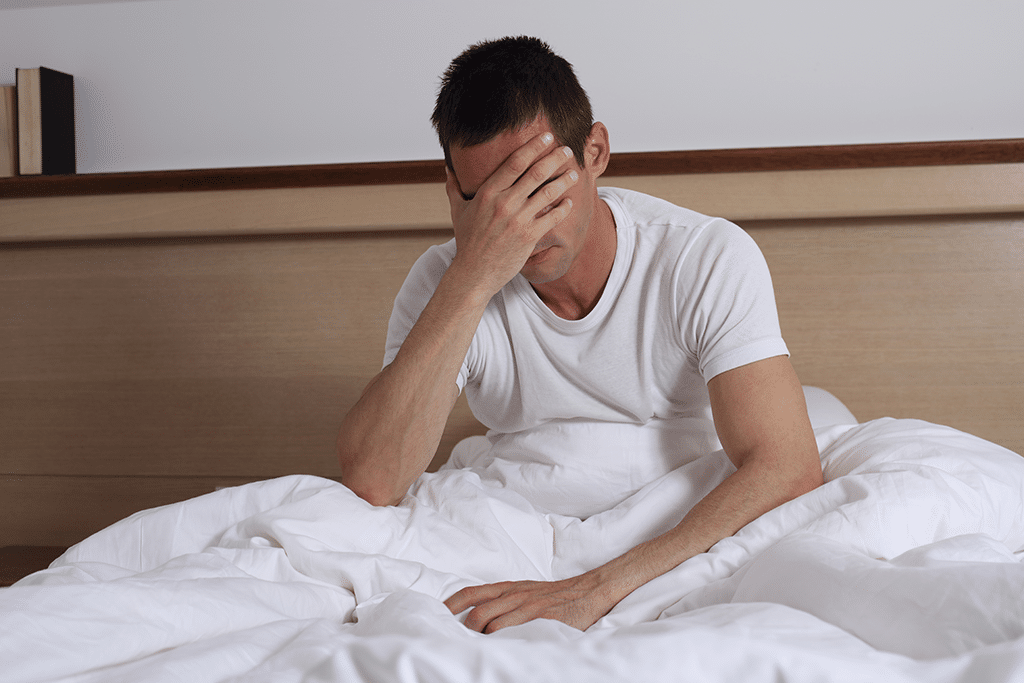We’ve all had those sleepless nights where we toss and turn, counting down the hours until the alarm sounds. It’s easy to brush off one or two nights of poor sleep, but chronic sleep deprivation can have lasting negative effects on both physical and mental health.
In this blog post, we’ll explore the link between poor sleep and mental health and provide some tips on how to improve the quality of your sleep routine.
Poor Sleeping Habits Can Heighten Mental Health Issues
Sleep and mental health have a complex relationship that can both influence and be influenced by each other. Mental health issues themselves can affect your sleep patterns and make it harder to fall asleep and stay asleep. For example, if you have a racing mind, you may find it hard to switch off at night. You’ll go to bed and wake up feeling restless or agitated. Sleep disorders such as insomnia and sleep apnea can also be triggered or worsened by mental health issues.
On the other hand, when you don’t get enough sleep or have poor quality sleep, you’re more likely to experience negative or heightened mental health issues. Let’s go over a few of the side effects you may experience or currently be experiencing from consistently bad sleep.
Your Mind and Body are Affected by Sleep
First, poor sleep can affect the brain’s ability to process emotions. Sleep deprivation impairs our ability to recognize facial expressions and emotional cues. You may find yourself less empathetic and more prone to mood swings. Lack of sleep also affects our decision-making processes and can make us more impulsive. Anxiety and depression can become worse as we struggle to manage our emotions.
Secondly, sleep deprivation may affect memory and cognition. During sleep, our brains consolidate and process memories. When we don’t get enough sleep, that process is disrupted. You might begin to have trouble with learning and retaining information. Additionally, lack of sleep can affect our ability to concentrate and make it difficult to focus on tasks or conversations.
Thirdly, poor sleep can lead to physical health problems, such as obesity, diabetes, and heart disease. However, these physical health problems can also impact mental health. For example, a lack of sleep can increase inflammation in the body, which can lead to depression. Long-term sleep deprivation can also lead to chronic pain.
Daily activities can become increasingly difficult to manage as sleep problems worsen. So how can we improve our sleep to support our mental health?
We Break the Cycle
To help break the cycle, we’ve put together a list of tips to improve your sleep hygiene and promote better mental health.
1. Stick to a regular sleep schedule. Try to go to bed and wake up at the same time every day, including weekends. This helps your body establish a natural circadian rhythm that regulates your sleep-wake cycle.
2. Create a relaxing bedtime routine. Wind down for at least 30 minutes before sleep by doing calming activities such as reading, taking a warm bath, or listening to soothing music. Avoid bright screens, caffeine, and heavy meals close to bedtime.
3. Make your bedroom conducive to sleep. Keep your room cool and dark. Turn off any sounds if you prefer the quiet, or consider a white noise or sound machine if background noise is calming to you. Consider investing in a comfortable mattress and pillows. Remove any distractions, such as TV, computers, or mobile phones. Use them only for emergencies.
4. Practice stress reduction techniques. Find ways to manage your stress during the day, such as exercise, mindfulness, or therapy. If you have persistent anxiety, depression, or other mental illnesses that are drastically affecting your sleep, consider seeking professional help from a mental health counselor.
5. Seek medical attention for sleep disorders. If you’ve been struggling with sleep problems for a while, it’s time to consult a doctor or sleep specialist. They can help you identify any underlying conditions and recommend appropriate treatments, such as medication, cognitive-behavioral therapy, or lifestyle changes.
Conclusion
Poor sleep can have a significant impact on your mental health, and vice versa. At Cornerstone Foundations for Families, we believe that everyone deserves to have access to mental health resources, especially when poor sleep and other issues impact our lives.
Our mission is to help people meet life’s challenges by providing the skills, support and hope needed for effective, fulfilling lives. Please feel free to contact us for professional counseling support or education on mental health issues related to poor sleep and other concerns.
We are here to help.


